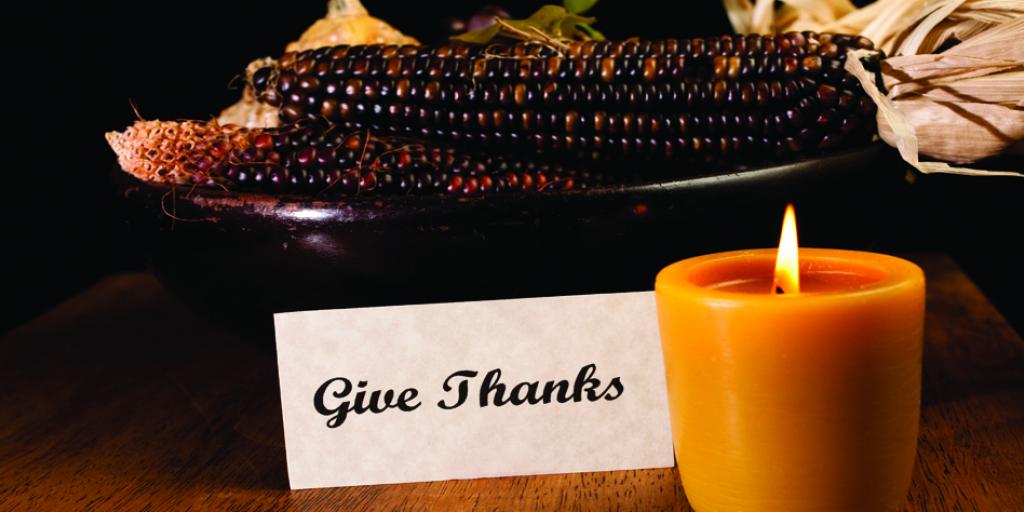
Count Your Blessings
Some of my most pleasant memories come from spending Thanksgiving with my family. But the holiday also makes me think about times when I have not been particularly thankful. God has blessed me with many wonderful experiences and opportunities, even when I least expected (or acknowledged) them.
The American holiday of Thanksgiving—along with related holidays celebrated by countries like Canada (in October) and others—offer useful opportunities to reflect on personal and national blessings and to renew an “attitude of gratitude." How important is this attitude? Thankfulness is a godly virtue, and the Bible contains many powerful examples of the danger of ingratitude.
One can be found in one of the most important Old Testament miracles God performed, providing food for His people where there was none—bread from a wilderness, life-giving provision from the rocks and dew of a desert (Exodus 16:1–5). Manna from heaven was neither stuffing, nor pudding, nor turkey and gravy, but it gave sustenance, and with it, God was proving Himself to His people by providing for them so that they might live. Having opened the door to their deliverance, His gift of manna was enough, even more than enough, for a people so recently enslaved in bondage and ignorance!
So, how did the Israelites respond to God’s gift? They complained about its lack of variety and asked for meat (Numbers 11:4–6). These people, who had not shown themselves willing to abide by their covenant with God, were already putting Him to the test by their complacency and ingratitude! If God could give them bread, they reasoned, why not meat? They missed a valuable opportunity to persevere in faith, to recognize that, though the road to freedom had its share of hardships, God would soon give them more than they could ever imagine.
Otherwise, why had He put them on that road at all?
But they became focused on the here and now, and so God heard their complaints and gave them what they wanted—and it was a harsh lesson in being careful what you wish for! He brought waves of quail, and fed them meat until they literally got sick of it: “You shall eat, not one day, nor two days, nor five days, nor ten days, nor twenty days, but for a whole month, until it comes out of your nostrils and becomes loathsome to you, because you have despised the Lord who is amongst you, and have wept before Him, saying, ‘Why did we ever come up out of Egypt?’” (Numbers 11:19–20). God then sent a plague to finish off those who most offensively allowed their desire for self-gratification to cause them to forget that most basic need to thank God first (Numbers 11:33–34). The lesson was one of hard hearts and hard consequences, but thankfully, an extreme one. When God opens a door out of slavery and into freedom, the least one can do is thank Him for it.
Have you remembered to thank someone today for their help or service? Have you remembered to thank God for any blessings you might have received in your life? Sometimes, when we feel like we've suffered the most or not gotten the "best" out of life, we actually do ourselves a disservice by getting into a thankless attitude, which can be an ugly curse all on its own. May it never be so—help yourself and all those you interact with by meditating on the positive, even in "evil days" (Ephesians 5:15–21). It may be the key to your endurance, and better things to come.
Thanksgiving is a great occasion for us to reflect on our attitude of gratitude, a civil holiday that pays homage to where true blessings come from. However, God Himself has given His people an annual series of Holy Days that are even more meaningful, yet have rarely been practiced. Those Holy Days are true gifts from God. If you want to know more, please write or call for our free booklet, The Holy Days: God’s Master Plan, and learn about how God’s Holy Days can change everything you ever knew or thought about “the holidays,” and show you what most to be thankful for.
Stay up to date with our Weekly Digest Email!
Tomorrow's World ComMentary Podcast
Subscribe to Tomorrow's World Commentary podcasts on iTunes and Google Play!



